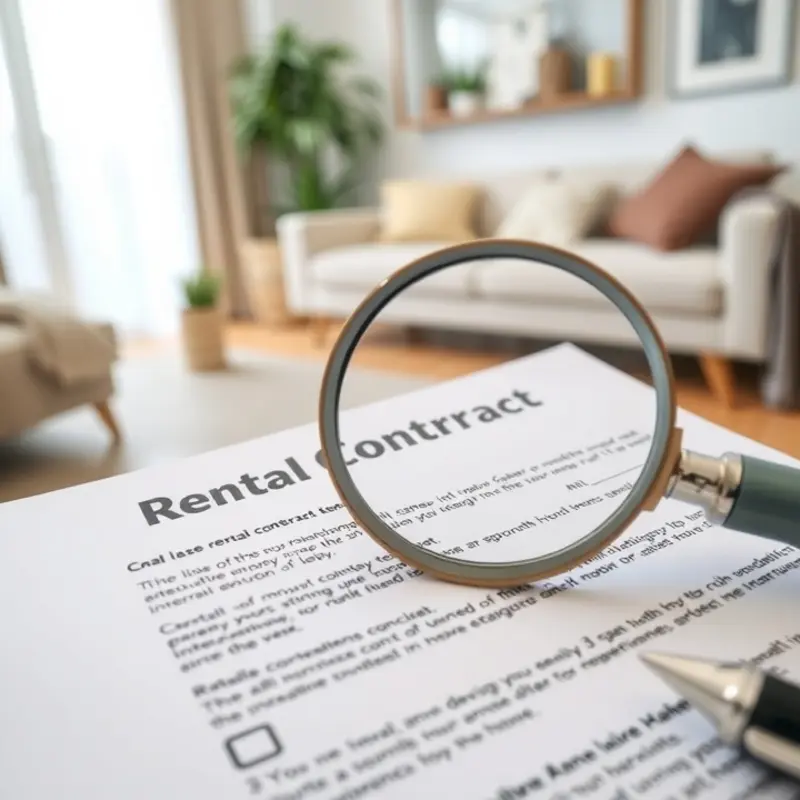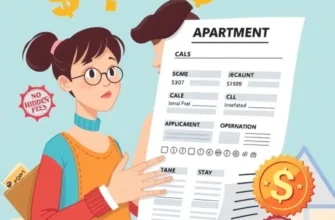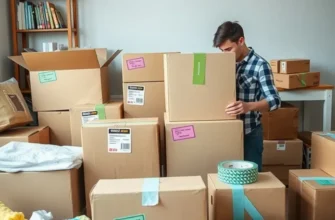Moving into your first rental home is exciting, and let’s be honest, a little scary too! You’ve browsed the listings, called the landlord, and set your heart on that adorable apartment with a balcony perfect for morning coffee. But wait, just when you’re ready to sign on the dotted line, here comes the rental contract to rain on your parade. The terms can sound like a foreign language, and let’s face it—who really understands what ‘pro-rata rent’ means? Fear not! We’re diving into the world of rental contracts, arming you with the knowledge to turn that confusing legalese into simple, digestible terms. This way, you can stroll confidently through your rental journey and find joy in every nook and cranny of your new home. Whether you’re a young professional, part of a couple, or moving in as a family, grasping these documents doesn’t have to feel like solving a Rubik’s Cube blindfolded. Grab your highlighter and let’s break it down together!
Your Rental Contract: The Basics You Need to Know

Decoding your rental contract might seem daunting at first, but breaking it down into essential elements can make the process far less intimidating. Let’s start by exploring some of the key terms you’ll come across in a rental agreement.
Lease Duration: This is the length of time your contract will run, usually specified in months or years. It’s crucial to know whether you’re signing a fixed-term or month-to-month lease. Fixed-term leases offer stability, but month-to-month contracts provide flexibility if you’re uncertain about your long-term plans. Always be aware of any stipulated penalties for breaking the lease early.
Rent Amount: Apart from the obvious monthly charge, check if the contract mentions any potential rent hikes. Landlords might reserve the right to increase rent, especially if you’re renewing after the initial lease term. Understanding these terms can help you plan your budget effectively.
Security Deposit: This one-time payment acts as a safeguard for the landlord against potential damage to the property. Always ask how much you’re expected to pay and under what conditions it would be returned. Some landlords may deduct cleaning fees or repair costs, so document the apartment’s condition when moving in and out.
Rules for Living: Many rental agreements include specific dos and don’ts to maintain harmony and security. These could range from pet policies to noise restrictions. If you own a pet or plan late-night gatherings, make sure these align with the contract terms. For more pet-related guidelines, you might find this article on pet-friendly indoor activities useful.
Common Jargon: Understanding rental lingo can be empowering. Terms like “joint and several liability” can affect roommates, meaning each signer is responsible for the full rent, not just their share. Be mindful of “subletting” clauses if you plan to have someone else temporarily live in your place.
What to Watch Out For: Hidden fees and vague terms can be red flags. Double-check for any unusual clauses about maintenance responsibilities, property access rights for landlords, and charges for amenities. If anything seems unclear, don’t hesitate to ask your landlord or a legal expert for clarification.
By demystifying these aspects, you ensure you’re better equipped to avoid potential pitfalls. This knowledge makes you not just a signer of a document but a savvy renter who understands the agreement’s implications. Ready to make your next move confidently?
Red Flags and Perks: What to Look For

Navigating the world of rental agreements can feel daunting, but knowing what to look out for can turn a potential nightmare into a dream living situation. Start by examining any clauses related to noise restrictions. If you love throwing Friday night gatherings, or if you are a musician, this is crucial. Some leases may be restrictive, and failure to comply might lead to penalties.
Keep an eye on the pet policy, even if you don’t have a furry friend—yet. Often, leases include specific clauses about which types of pets are allowed, potential fees, and the kind of maintenance required. If there’s a pet deposit, check whether it’s refundable and under what conditions. Speaking of pet policies, maybe you’d like some pet-friendly indoor activities to entertain your four-legged companion here.
Another important aspect is understanding the clauses around maintenance and repairs. Leases should clearly state who is responsible for various types of repairs. If a leaky faucet or a broken heater needs service, will your landlord handle it, or is it your responsibility? Knowing this upfront can spare you unexpected costs and disagreements later.
Now, let’s unveil some perks you might miss if you only skim the document. Look for added benefits like free parking, storage facilities, or in-unit laundry services. Sometimes, rental agreements include access to amenities such as pools, gyms, or community events. These perks can significantly enhance your living experience and offer additional value.
Understanding the increase in rent policy is another critical point. Check how often the landlord can increase the rent and by how much. Rent increments should align with regional norms and should not occur within your lease term unless specified.
Informing yourself about termination clauses will help you plan your future. Can your landlord cancel the agreement without cause, or do you have protection against arbitrary termination? Ensure you grasp any penalties associated with breaking the lease early, whether you’re planning a move or reacting to unexpected life changes.
Lastly, ensure there are no ambiguous terms in the landlord’s entry rights. Understand the conditions under which your landlord or property manager can enter your apartment. A well-crafted lease will protect you from unexpected visits and maintain your privacy.
By focusing on these details, you’ll transform the stress of renting into a positive experience. Your rental agreement is more than a seed of potential hassles—it’s the foundation of a comfortable home.
Final words
Arming yourself with knowledge about rental contracts will change your renting experience from nerve-wracking to empowering. With the essential basics and pointers on what to watch out for, you’re now ready to take on your first rental with confidence. Remember, a rental contract isn’t just a document—it’s your ticket to creating a cozy new home. Don’t forget to smile while signing because this is just the beginning of your adventure in a place that will become your own little haven!









